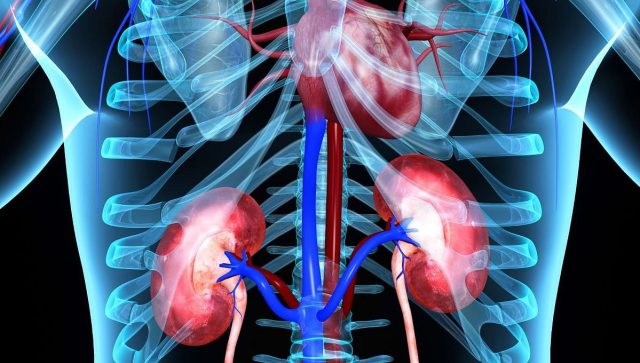Total adverse events of heart failure or all-cause mortality were reduced with empagliflozin, regardless of kidney function
By Elana Gotkine HealthDay Reporter
THURSDAY, June 26, 2025 (HealthDay News) — Empagliflozin has kidney protective effects and reduces heart failure outcomes across baseline kidney function among patients with acute myocardial infarction (MI), according to a study published online June 13 in Nature Cardiovascular Research.
Rahul Aggarwal, M.D., from Harvard Medical School in Boston, and colleagues examined the cardiovascular-kidney effects and safety of empagliflozin in a secondary analysis of a multicenter, clinical trial involving 6,522 patients with acute MI and risk for heart failure who were randomly allocated to receive empagliflozin or placebo.
The researchers found that the mean estimated glomerular filtration rate at baseline was 76.1 mL/min/1.73 m2; longitudinal kidney function data were available for 1,152 treated patients from select countries. Compared with baseline, by 24 months, the estimated glomerular filtration rate was similar in the empagliflozin group, but decreased in the placebo group. Irrespective of kidney function, the total adverse events of heart failure or all-cause mortality were reduced with empagliflozin. Similar 30-day adverse event rates were seen by treatment group, which were consistent across baseline kidney function.
“Empagliflozin demonstrated beneficial kidney-protective effects, reduced heart failure outcomes and was safe to initiate soon after acute MI,” the authors write. “The cardiovascular-kidney benefits and safety of empagliflozin were consistent irrespective of baseline kidney function.”
Several authors disclosed ties to biopharmaceutical companies; the study was funded by the Boehringer Ingelheim and Eli Lilly and Company Alliance.
Copyright © 2025 HealthDay. All rights reserved.



















